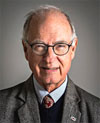Special to WorldTribune.com
 By Donald Kirk
By Donald Kirk
SEOUL — The Demilitarized Zone that’s divided North from South Korea since the Korean War evokes images of the Berlin Wall that divided East from West Berlin from 1961 to 1991 but shows no signs of going down after the second summit between President Donald Trump and North Korean leader Kim Jong-Un.

Oblivious to the symbolism of the double barbed-wire barriers that stretch 250 kilometers across the Korean Peninsula, Kim is determined to suppress rebellious instincts that might inspire revolt against his rule.
With no one to question anything, Kim does not appear aware of calls by his grandfather Kim Il-Sung, the North’s founding leader who died in 1994, for destruction of what he called a wall between North and South that “runs diametrically counter to the desire and demand of the nation and the trend of the times.”
That was presumably a reference to the four-kilometer-wide DMZ on either side of which North and South Korean forces stare from guard posts that Kim Jong-Un and South Korea’s President Moon Jae-In agreed in their last summit in Pyongyang in September to tear down. So far only 10 of 160 guard posts, 100 on the North Korean, 60 on the South Korean side of the Military Demarcation Line that bisects the zone, are gone.
Those who have worked in North Korea or examined what’s going on get the impression that North Koreans basically have no idea how to respond to reports that South Koreans are leading better lives. Nor do they see much chance of really penetrating the barriers despite exchanges engendered by the summits.
“Authorities (in the North) don’t want it,” said David Hawk, author of “The Hidden Gulag,” a classic study on the North’s human rights record. The opaque nature of the North “may change a bit if President Moon gets his way,” he said, but opening up the hermit kingdom will be “a long and slow process” even if Kim “is hoping to improve the North Korean economy enough to keep people happy.”
No one doubts that conditions in North Korea are far more severe than they ever were in East Germany before the fall of its Communist regime or the downfall of communist rule in the former Soviet Union and other eastern European countries in 1989 and 1990. It’s a tribute to the power of the Kim dynasty that the failure of communism in the old Soviet bloc was a deep and dark secret to his people, who heard not a word about it on the state broadcast and print media.
Kim Jong-Un’s stubborn opposition to softening of tensions that might lead to removal of the Demilitarized Zone helps explain why life in the North is hardly improving despite his stated goal of focusing on the economy. Revolt, however, is not an option.
“I have talked to nearly 150 defectors,” says Robert Collins, reflecting on a career analyzing North Korea, first as a U.S. Army soldier and then as a senior civilian with the U.S. and U.N. commands. “Most of them did a lot of wondering about the South when in the North, but few actually understood what they heard or saw on videos.”
As for bringing about change in the North, that’s a non-starter. People are “too worried about consequences,” said Collins, who has written three revelatory books on life there. “The surveillance ― political, ideological and physical ― by the Korean Workers’ Party and the internal security services is far too great.” Collins is sure George Orwell, author of “Animal Farm” and “1984,” “never imagined this.” The dictatorship “is so pervasive” ― “outside the elite, they know nothing” of the fate of communist regimes in Eastern Europe.
Ken Eom, who defected from North Korea 10 years ago, recalls his ordeal vividly. “My mother and brother had already escaped,” said Eom, who studied English in Casey Lartigue’s Teach North Korean Refugees program. Though he rose to master sergeant in the Korean People’s Army, “I was not accepted as a party member” ― the prerequisite to success ― probably because they suspected his loved ones had defected. A broker, for $4,000, got him on the way to South Korea.
“Our people do not believe in the regime,” Eom told me. “The public distribution system outside Pyongyang is completely closed. People make money through the black market.” Kim may be “in more danger,” he believes, but “they could not start a movement.” In that atmosphere, nobody cares about nukes and missiles ― not a concern for a hungry people battling to live another day.
Donald Kirk ([email protected]) has been writing about the North-South confrontation since first covering the North-South Red Cross talks in 1972 for the Chicago Tribune.
